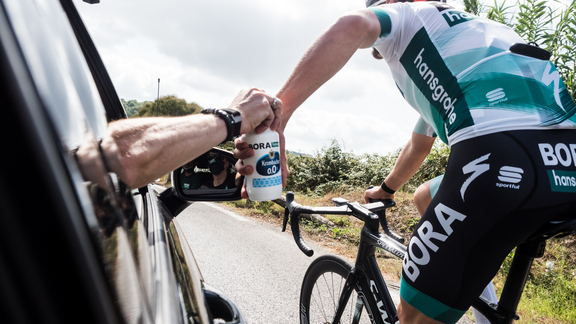

Energy consumption of a professional cyclist during the Tour de France
This year, the Tour de France will once again cover over 3,000 kilometres. These are divided into 21 challenging stages, crossing Alpine and Pyrenees passes, through the heat of Provence and across blustery sections in the west of the country before reaching the Champs-Élysées in Paris. A balanced and performance-optimised diet is essential for the professional cyclists from BORA - hansgrohe in order to cope with the strain, have enough energy and not lose their good mood.
But how many calories does a professional cyclist burn on a day of the Tour de France anyway? And how much do they have to eat to counteract this? The answer is simple: a lot! The quantities will seem unimaginable to a non-professional, but are necessary to optimally cope with the high stresses placed on the body.
There is no fixed answer as to exactly how many calories a professional cyclist will burn during a stage as it depends on several factors. These include:
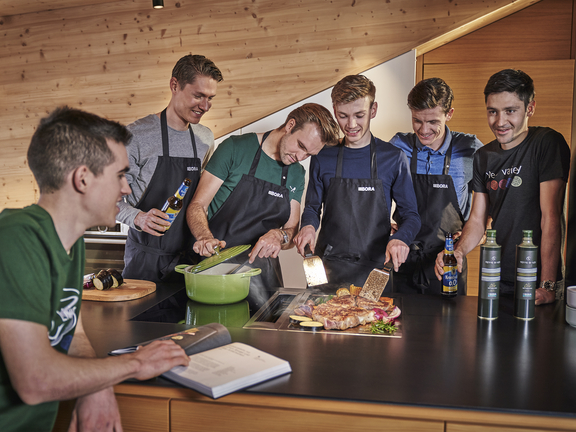
As a rough estimate, on a flat stage lasting four to five hours, a light cyclist is likely to burn an extra 2,500 – 3,000 calories on top of his 2,000 calorie basal metabolic rate. That means approx. 5,000 calories in total. In the case of an intensive mountain stage, however, a medium-weight rider can even burn as many as 7,000 or 8,000 calories. These levels of energy have to be taken on in a well-balanced manner throughout the day. This is the only way to ensure an ideal energy supply, good metabolism and quick recovery.
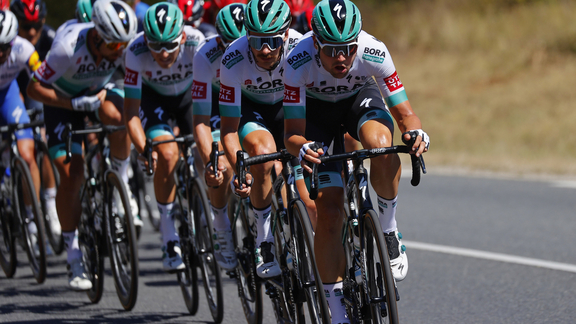
Sample meal plan for a professional cyclist:
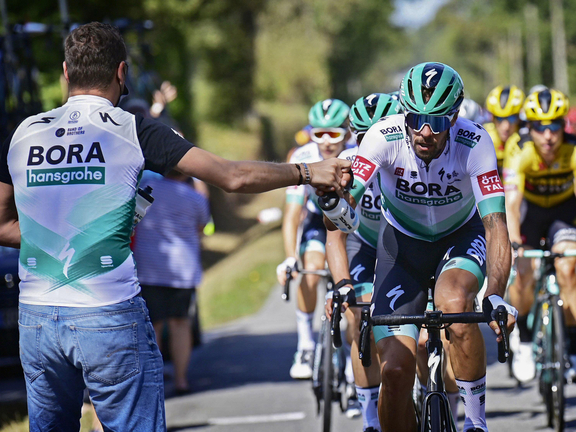
Breakfast
Snack before the race
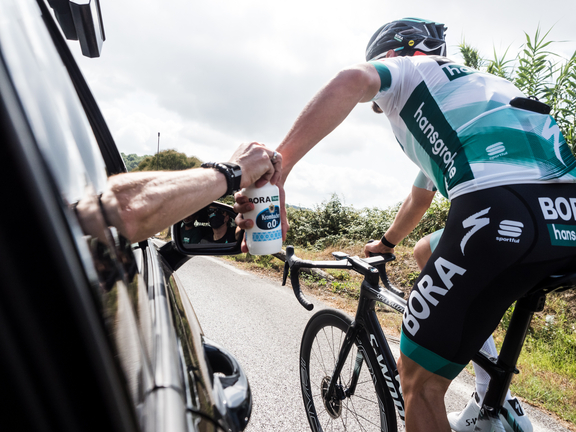
"Race menu"
Snack immediately after the race:

Post-race meal on the bus:
An exemplary dinner:
With such complex and diverse needs, it goes without saying that many people need to be involved in order to ensure that each cyclist receives the optimum diet. Dan Lorang, Head of Performance at BORA – hansgrohe, explains: “The logistics are a major challenge: we have to ensure that each cyclist receives the right amount of the right food at the right time (e.g. straight after crossing the finish line).” It sounds complicated but is something that can provide a competitive advantage to teams at the highest level of the sport. BORA is proud of being able to play its part in this success with its products and its Kitchen Truck.